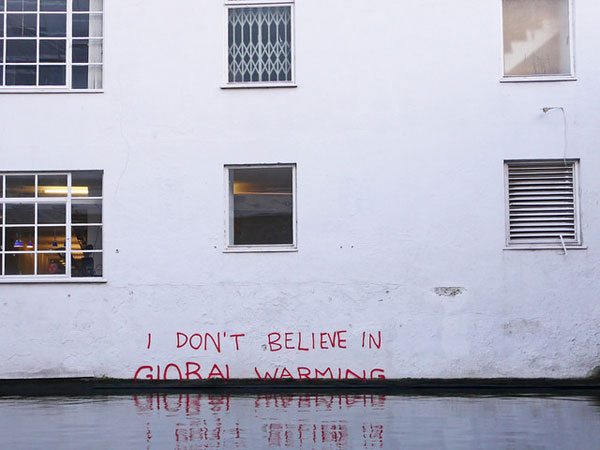
September 4, 2017; Washington Post
President Trump’s administration has made it plain it has no plans to fight climate change, but now it’s made it difficult for other organizations to fight it as well. The Environmental Protection Agency (EPA) recently ruled that all grants must be approved by Deputy Associate Administrator for Public Affairs John Konkus, who has in turn demanded that no solicitations contain “the double C-word”: climate change.
The asininity of demanding that the EPA refuse to consider any proposal that engages with the biggest extant environmental threat goes without saying. The question for our sector is, what do nonprofits do now? The EPA awarded nearly 2,000 grants in both 2013 and 2014. The greatest number goes to states, followed by Indian tribes, and then nonprofits. The grants fund everything from basic scientific research to community forums on bedbug prevention. Nonprofits that work in everything from environmental protection to community health will be impacted by this change.
The EPA’s move is different from the approach of other departments such as the Department of Energy, which simply removed mention of climate change from grant proposals. Konkus will (at least theoretically) personally review all of the grant solicitations; he has already canceled nearly $2 million of grants to nonprofits and other recipients, including $1.1 million to the UN for deployment of clean cookstoves in the developing world.
Sign up for our free newsletters
Subscribe to NPQ's newsletters to have our top stories delivered directly to your inbox.
By signing up, you agree to our privacy policy and terms of use, and to receive messages from NPQ and our partners.
It seems impractical for Konkus to take this on. According to Ars Technica, Konkus’ position is “a public relations position. Konkus…appears to have no scientific background—the closest is having worked for former Congressman Sherwood Boehlert (R-NY) back when Boehlert chaired the House Science Committee.” According to the new procedures, Konkus “will review the solicitation within three days of receiving it from the program office.” However, in addition to funding restrictions, this will surely result in a severe backlog of grant requests and delayed funding awards.
Should nonprofits adjust their proposals and hope to get some of the money they may have been counting on? According to the Washington Post, Konkus “allowed a $300,000 award for a computer system to help implement the Obama administration’s Clean Power Plan after the firm involved told the EPA that it could be used for policies other than climate change.” Could some organizations therefore adjust and work around the edges of climate science?
Other options rely on the resiliency of the sector. In a related article about federal cuts to lead poisoning prevention programs, NPQ author Spencer Wells suggested that “while fighting for continued funding for state and local programs, advocates also have a chance to reshape lead poisoning policies…Without EPA funding to implement a secondary prevention strategy, states may be willing to innovate.” Could a similar approach work here? NPQ has already noted that states, cities, and civic society have moved to fill the leadership vacuum left by President Trump’s withdrawal from the Paris accords. Will the EPA’s new restrictions force them to innovate further, or will the severe restriction of funds hinder them too much for effective research and advocacy?
Many advocates, including Sen. Tom Carper (D-DE), have called out this new regulation as an extension of partisan bias, unfounded on science and ultimately harmful to communities. We may hope that political pressure can restore some semblance of reason and scientific judgment to the grant approval process, especially considering the recent and ongoing natural disasters that are exacerbated by climate change and put many Americans at risk. In the meantime, some nonprofit creativity may be required.—Erin Rubin













